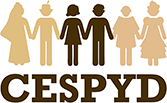Publicaciones
Teacher Well-being and Innovation with Information and Communication Technologies; Proposal for a Structural Model
Reference: Pablos-Pons, J., Colás-Bravo, P., González-Ramírez, T. y Camacho, C. (2013). Teacher well-being and innovation with information and communication technologies; proposal for a structural model. Quality & Quantity, 47: 2755–2767.
Abstract: The fundamental objective of the study presented in this article is to formulate a theoretical model with an empirical base that identifies the factors associated with the wellbeing of teachers, when they tackle processes of educational innovation mediated by the use of the information and communication technologies (ICT). Subjective well-being is an area of study of social psychology linked to the studies into “happiness” or “satisfaction with life” and constitutes an increasingly broad theoretical body. A questionnaire was produced, based on the scientific foundations that support the proposed model, and its validity and reliability have been established. The population and sample is made up of 322 teachers from non university centres that carry out innovative experiences with ICT in four Regions of Spain. The results obtained confirm five latent variables that explain the teacher well-being associated with innovation practices in ICT: (1) values/projects, (2) motivation, (3) competences, (4) satisfaction and (5) emotions. An explanatory structural model of teacher well-being is empirically validated. These findings could be of interest in identifying and promoting the relevant keys that help to improve the emotional states of working teachers.
Keywords: Teacher well-being, Questionnaire, Validation, Construct validity and reliability, Information and communication technologies, Structural model, Educational innovation.
